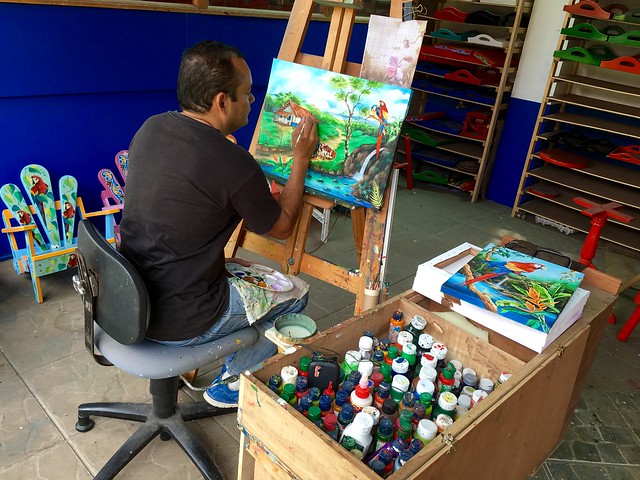Aero: Brianna Jackson – Costa Rica 2016 – Learning the Language

Creative Commons Image via The LEAF Project
…
Living in a country for two weeks, where the language is not one that I am fluent in, was certainly a culture shock. It was very overwhelming at first, and very hard at times to try and communicate with the people of Costa Rica. The most difficult experience concerning the language had to be with my host family. While I loved living with them, and had a great time with them, it is my personal opinion that I could’ve connected more with them if language had not been a barrier.
…
…

Brianna Jackson
It was easier to communicate with the son, Pablo, since he did know some English, however the mother knew none, and so when I spoke to her she understood very little. The most frustrating thing about the language barrier was the shower situation. My fellow housemates and I tried to explain that we were only talking cold showers, however, they didn’t understand what we were trying to say. It was only at a later date that the Pablo showed us how to work the shower. It takes a while for me to warm up to complete strangers, and while I was sad to go, and while I did have a great time with my host family, and I was able to experience a lot with them, I still feel that if I knew more Spanish I would’ve been able to connect more with them.
Trying to communicate outside of the host family home was another challenge, and far more difficult, simply because our host families understood the context of why we were there, why our Spanish speaking skills were basically non-existent, and so forth. Yet, to the outside Costa Rican world, I felt that we looked and seemed like a bunch of college tourists. The most worrying situation when living in a Spanish speaking country was anytime I had to order our own food at any restaurant. I remember there was one particular instance where the professors were busy and the waitress asked me what I wanted and I panicked and picked something. I also found trying to pronounce the names of food made me nervous, simply because I didn’t want to look stupid. My limited Spanish vocabulary only got me so far, and while the little booklet that we received was helpful, I still felt that I should’ve known more to properly communicate. Overall, I think I did a fairly decent job communicating. There was a lot of pointing and gesturing to things so that they got the context of what I was saying, and it was helpful when there were translations, or when the person spoke English as well. I certainly learned a lot of Spanish words.
Ultimately, living in a Spanish speaking country was an experience that was educational and enjoyable. Even though I had little to no idea what was being said at times, it was still enjoyable to watch people converse in their native language. I didn’t interact with many native Spanish speakers just because the conversation wouldn’t go far, but it was still nice to be surrounded by the culture, and to learn.
Brianna Jackson
LEAF Contributor
ML@FLCC: Costa Rica 2016
…

